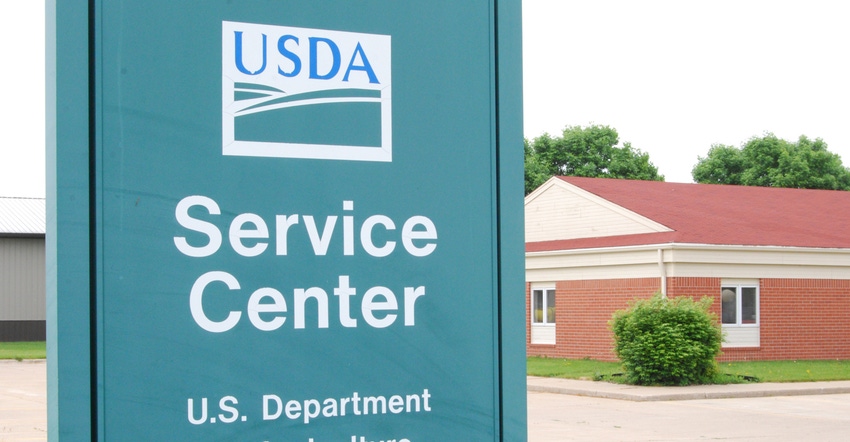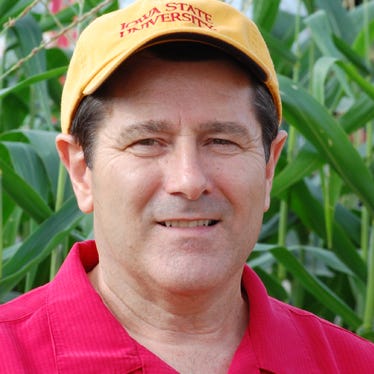December 11, 2020

Enrollment for the Agriculture Risk Coverage and Price Loss Coverage program for the 2021 crop year is underway at your local Farm Service Agency office. That decision is by FSA farm number and the historical base acres of crops on that farm and tract. Sign-up runs through March 15.
ARC and PLC are USDA farm safety net programs that can help producers with fluctuations in either revenue or price for certain commodity crops. These include barley, canola, large and small chickpeas, corn, crambe, flaxseed, grain sorghum, lentils, mustard seed, oats, peanuts, dry peas, rapeseed, long grain rice, medium and short-grain rice, safflower seed, seed cotton, sesame, soybeans, sunflower seed, and wheat.
Local FSA offices are encouraging producers to take time over the next few months to evaluate their program elections and enroll for the 2021 crop year. ARC provides income support payments on historical base acres when actual crop revenue declines below a specified guaranteed level. PLC provides income support payments on historical base acres when the final national average cash price for a covered commodity falls below its effective reference price. For 2021, that’s at $3.70 per bushel for corn and $8.40 per bushel for soybeans, respectively.
2021 election, enrollment
Producers can elect coverage for the 2021 crop year and enroll in crop-by-crop ARC-County (ARC-CO) or PLC. Another choice is to enroll the entire farm in the ARC-Individual (ARC-IC) program. Although election changes for 2021 are optional, enrollment (a signed contract) is required for each year of the program. If a producer has a multiyear contract on the farm and makes an election change for 2021, it will be necessary to sign a new contract.
Key to this decision will be the national average cash price outlook for the 2021-22 marketing year. That is because the final national average cash price by crop will not be known until late September 2022. It must fall below the effective reference price so that a PLC payment be triggered. Most analysts expect those national cash price projections to be roughly $4 per bushel for corn and $10 per bushel for soybeans, based on larger U.S. planted acres, normal growing conditions and strong U.S. export demand.
Since these projected prices are above the effective reference prices, then PLC payments would not be triggered for the 2021 crop year. As a result, most producers will likely elect and enroll both their corn and soybean base acres in ARC-CO to increase the likelihood of triggering an ARC or PLC payment.
ARC-CO payments are triggered when the actual county crop revenue of a covered commodity is less than the ARC-CO guarantee for the crop. The actual county revenue and the revenue guarantee are based on county-level yield data for the base acres’ physical location of the farm and tract. ARC-CO payments are not dependent upon the planting of a covered commodity or planting of the applicable base crop on the farm. Some producers could elect ARC-IC that combines the entire farm’s crop base acres, perhaps noting a higher risk of yield loss for 2021. ARC-IC farm eligibility is contingent on planting of a covered commodity.
Sign-up deadline March 15
If your ARC or PLC decision is not submitted to your local FSA office by March 15, the election defaults to the current election for crops on the farm from the prior crop year. For each crop year 2022 and 2023, you can make new elections annually during those sign-up periods that end March 15. Farm owners can’t enroll in either program unless they have a shared interest in the crops on their farm.
Rather than waiting until the March 15 deadline, producers are encouraged to work with their local FSA office to make their election and enrollment decisions early. This will help spread out the workload for your FSA office and allow more time to focus on any crop insurance changes for your 2021 crops.
New crop insurance product
A new county-based crop insurance product called Enhanced Coverage Option can be added to your traditional multiperil crop insurance coverage beginning in 2021. Note that ECO can be purchased regardless of your base acres having been enrolled in the ARC or PLC program. The Supplemental Coverage Option (SCO) product can’t be purchased unless the base acres on that farm were enrolled in the PLC program.
ECO offers producers a choice of 90% or 95% trigger levels of county-based coverage for a portion of the underlying crop insurance policy. If you choose revenue protection, then ECO covers revenue losses. ECO provides a band of coverage between these elected levels and 86%. It is expected that most producers interested in buying ECO in 2021 may plan to enroll in either ARC or PLC, and then buy up their farm-level revenue protection to the 80% or 85% levels. That’s because of the subsidy levels and premiums to be paid for the underlying crop insurance products.
Johnson is an Iowa State University Extension and Outreach retired farm management specialist. He can be reached at [email protected].
About the Author(s)
You May Also Like






